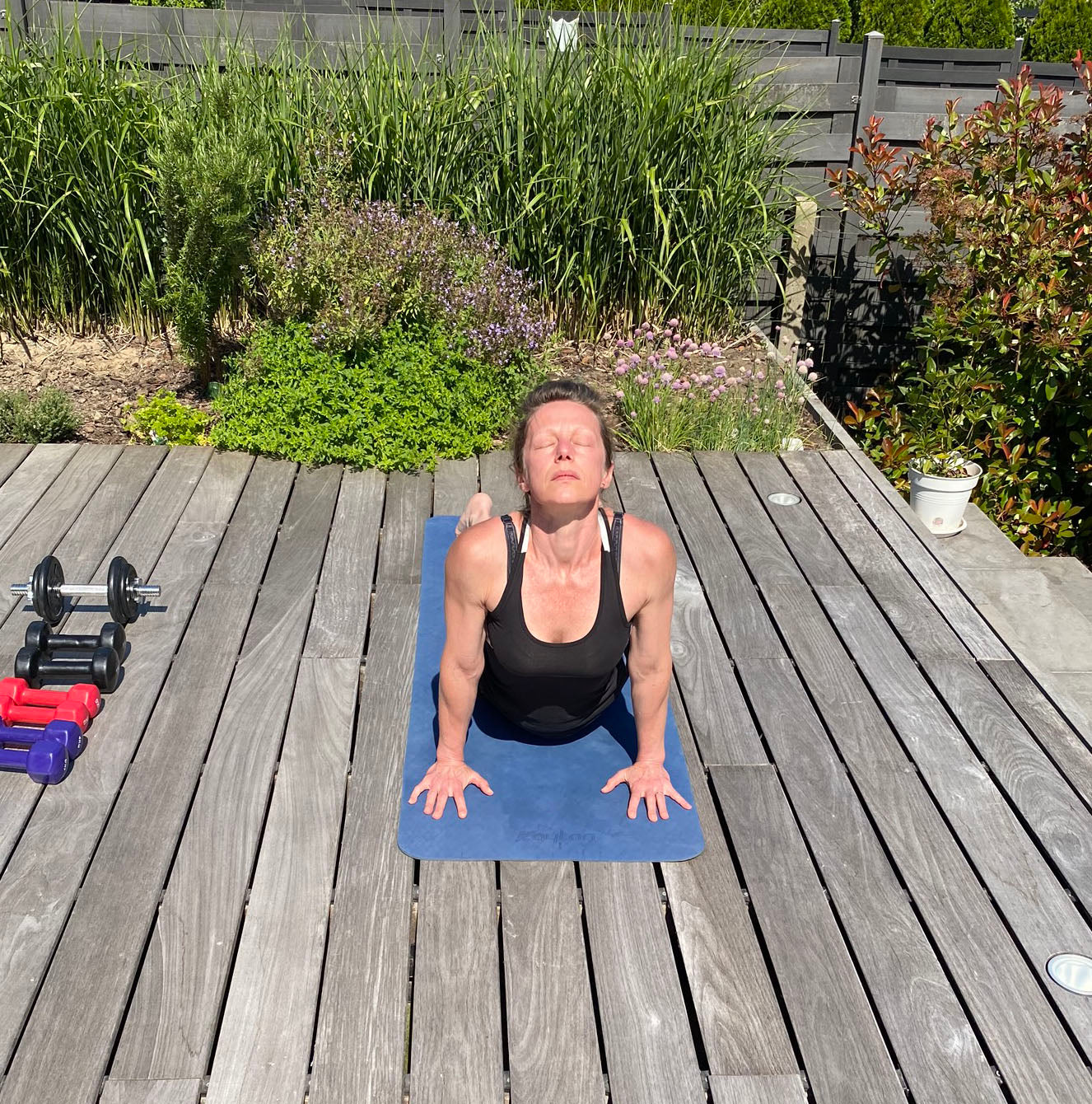" It's not a diet, it's enjoying every bite of delicious, real food at every meal and feeding your body the nutrients it needs to thrive."
Recently kicked off your ketogenic journey and not sure you're on the right path? Don't know if the keto diet is the right for you?
In this article, Belgian keto coach Sofie shared with us some good advice for beginners: things she recommends to do before starting, dealing with cravings, what she thinks about cheat days, and more.
These awesome tips might help you make the best out of your journey.
But first, just a little background information on Sofie.
She is a Nutritionist and a certified Keto and low-carb coach. Her motto is to "keep educating yourself". As new studies and research over the ketogenic diet keep being published, she's continuously following Keto training programs. Never too well informed.
Her Keto journey started well back in 2013. She was diagnosed with IBS as a teenager and struggled to find the right diet to ease her symptoms. IBS is short for Irritable Bowel Syndrome - a common disorder of the digestive system.
She tried so many different diets: whole-grain high-carb, standard low-calorie, Fruit diet... you name it. Nothing worked. At one point, her doctor said she just "had to learn to live with it". Luckily she didn't give up, and over time, she learned that the ketogenic diet was the right one for her.
Sofie, in your opinion, who would benefit from a ketogenic diet?
I think the majority of people would benefit from a low carb / ketogenic diet. There are some contra-indications, like people with some metabolic disorders/diseases, Pyruvate carboxylase deficiency, Porphyria, etc.
People who take medication should always consult with their physician and work with a professional. Because the ketogenic diet is so effective, medications often need to be adjusted quickly.
People with eating disorders like anorexia might also struggle with the diet. Mainly because of the fear of fat. They should always be under professional care/assistance when starting a ketogenic diet.
Plus, it also depends on the 'type' of Keto diet one adheres to.
There are different forms like the more restrictive 4:1 ketogenic diet, mostly used for a therapeutic purpose, and there are less restrictive forms.
It all depends on the goal of implementing the diet. That being said, the ketogenic diet, if done correctly, offers a lot of health benefits for most people.
What is your advice for someone who's thinking on following a ketogenic diet?
My advice is: Never start uninformed. Do your research. Join a group.
And...
- Make sure you get your macro's right. And by that I mean, focus on keeping your carbs low, but make sure to get enough protein at every meal to prevent muscle loss and eat fat to satiety. Everybody is different and has different needs. That's where a coach comes in, they can calculate your personal needs and make sure you are getting the right amount of nutrients that you need, that your body needs.
- Learn how to read food labels. Big companies are putting all kinds of sugar and other addictive flavour enhancers in many products.
- Give yourself time to adjust to your new lifestyle and don't compare yourself (or your results) to others. You are unique. Your body is unique. There is no one fits all! 😊 Sure you will make mistakes, we all do. Learn from them! If you slip or fall, get up and move on. That's the power of your success!
If you're not sure if you can make it on your own, get help from a (Keto) professional.
Which 'approach' to Keto do you usually recommend, in terms of what to eat?
My approach to Keto is 'eat real food' as minimally processed as possible and eat only when you're hungry. I make a point out of getting high-quality, preferable grass-fed or at least organic, pasture-raised meat. As well as full-fat dairy and cheese and when possible, organic vegetables/produce.
Real foods are more nutrient-dense and will make sure you get satiated more quickly.
People need to (re)learn how real food tastes like. Learn to enjoy the taste of real food! Learn to listen to your body when it is full.
Awesome tips. We know that transitioning to a ketogenic can be quite challenging for some people, and this is very helpful.
Did you go through any challenges yourself when you started your keto journey?
When transitioning to a ketogenic diet, the real challenge for me was to cut back on fruit. I still ate fruits during and after workouts. I didn't eat it during the day, as a snack I mean, but rather as something to (re)fuel muscle glycogen. Especially dried figs and dates.
So, when transitioning to the Ketogenic diet, eventually I cut back on fruit, replacing it with homemade chocolate granola.
You know I love chocolate...
Now I prefer to work out in a fasted state. If my schedule allows, I also wait another half hour or an hour after a workout to eat to maximize fat burning.

Another challenge we hear a lot from our community is dealing with cravings. Especially women. You know... those pre-period sugar cravings when you just wanna devour a bucket of ice cream. How do you overcome these carb cravings?
When you first adhere to the diet, it can be helpful to replace your 'regular' sugary snacks with keto-approved ones.
Like your keto chocolate bars. 😉
You can also use sweeteners like erythritol and stevia, but no others.
Instead of sweetening your coffee or tea with sugar (or a sugar replacement) add heavy cream or butter.
You'll be amazed how quickly the sugar cravings pass by and how fast your taste changes (your taste buds adjust). Even as short as in 7 – 10 days.
Personally, another challenge for me was not letting everybody's comments get me off track. And foodwise, it would have been not overconsuming fat.
I don't have a sweet tooth. I have a Fat and Salt tooth.
The thing is that I really really love butter. Especially salted butter. I can eat it like a piece of cheese.
So apart from chocolate, a piece of butter with some coarse salt is the perfect snack for me. It satisfies my cravings.

Now that we're talking about cravings... What do you think of the typical 'cheat days'? Yay or nay? What happens when you cheat on a ketogenic diet?
No cheat days for me. And I also advise against it for my clients.
Of course, it depends on what you call a cheat day.
If you have reached your goal and you want to implement a day (once in a while) were you eat more carbs, protein or fat, or even some more starchy vegetables, that's not a big issue.
To me, that is not an actual cheat.
If on that 'cheat' day, you eat processed whole grain foods like bread or pasta, then you aren't doing your body or health any good. You could experience bloating, diarrhoea, etc.… That to me is what I call a real cheat.
Another challenge that we get asked a lot is that some people struggle to see weight loss results on keto. What might be causing this?
When people are not losing weight on Keto, even when keeping their carbs low, the chances are that they are overconsuming fat.
The Keto diet is indeed a high fat, moderate protein and low carb diet, but if you want to lose body fat, you've got to get a part of your daily energy from your own fat stores.
Once keto-adapted, you can access your own body fat stores and use this for energy. So, I'm not a real big fan of bulletproof coffee and don't recommend pouring oil on everything.
Yes, you need extra fat at the beginning of the diet to keep you satiated. And to make sure you have enough energy while your body is adapting.
However, when you are fully adapted to the diet, and your body produces enough endogenous ketones (if weight loss is your goal), you should cut back on dietary fat.
Just a little remark I want to make: Fat-adapted and Keto-adapted are NOT the same thing!
Fat-adapted means your body can burn fat (fatty-acid) for energy. You might even be making ketones, but it takes way more time than people think to get Keto-Adapted. This means that your body is producing AND using ketones in a very efficient manner and as a primary fuel.
My favourite quote all time is the one from Stephen Phinney:
"in case of doubt, eat less carbs".
"in case of doubt, eat more fat".
Now that you've been on Keto for 7 years, what do you usually eat in a day?
I normally eat two meals a day.
My first meal is around noon. I usually eat meat or cheese with a little butter. Sometimes eggs or a bowl of soup with some bacon or ham or cheese. Especially during winter.
I used to bake a lot of keto bread but not anymore.
My focus is on real, whole foods. Meat, fish, eggs, cheese, some veggies and healthy fats.
At dinner, I usually eat cheese and gherkins with a little Dijon mustard or some olives as an appetizer, followed by a full Keto meal.
That can be a steak with creamy mushroom sauce, salmon with asparagus, pork chops with endives, etc.…
But also a Fathead Pizza or my favourite stuffed Red Bell Peppers with my 'very popular' tomato cream sauce, or my son's favourite: keto lasagna.
I love cooking, so I always try new recipes.
Most of them are improvisations that often turn out to be so delicious that I quickly have to write down the ingredients so I can make it again. Then I take pictures and post it as a recipe on my site.

Hungry already anyone?!
Now, classic question. We know you are a big fan of our keto chocolate bars and we're so honoured that you recommend it to your clients as well. Do you have an all-time favourite flavour?
My favourite Funky Fat Foods' chocolate bar is the … Can I name two?
That would be the Dark and the Coffee. 😊
This was great, Sofie. Thank you so much! Anything else you'd like to add about the ketogenic diet?
I would like to add that the ketogenic diet is a way of life!
It's not a diet, it's enjoying every bite of delicious, real food at every meal and feeding your body the nutrients it needs to thrive.
That's what you'll get with a well-formulated ketogenic diet.
If you have any questions for Sofie, or tips for other beginners, drop them on the comment section below!
Other blogs you might enjoy:




Leave a comment
All comments are moderated before being published.
This site is protected by hCaptcha and the hCaptcha Privacy Policy and Terms of Service apply.